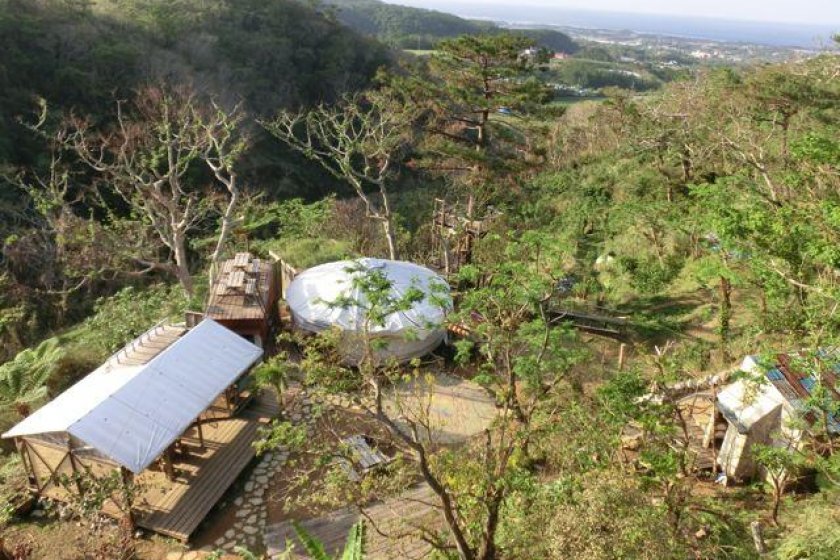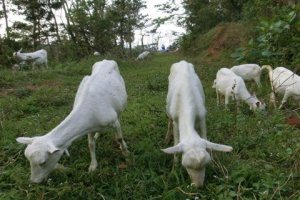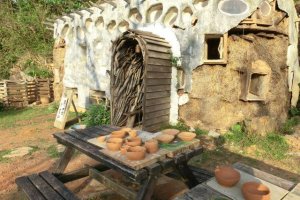A year ago, the lady and I stumbled into a quaint handmade café in Hokkaido called Café Suiba, a secret hiding place where kids would play hide and seek or look for treasure. True to its name, it was organically assembled with love and care everywhere you look. Private nooks and crannies provide a playful atmosphere where you can enjoy delicious food and hot chai tea as in the tree house of your dreams.
The kami-sama or owner of the place who often goes by the alias Nepamaru struck up a conversation and before you know it we learned that he and a group of friends had done the entire construction job, start to finish, all themselves. I was impressed. So much so that he told me about a site in the jungle of northern Okinawa called Beach 69 Rock Village. “If you ever get to Okinawa, you might like the place,” he casually recommended. Little did he know, a year later we would find ourselves at the bottom of a steep one-lane climb up 2.5km into the jungle where a wild and funky community of Beach Rockers work and play the days away.
High above the well-known beaches of Okinawa, swaying amidst the Hego tree ferns and Matsu black pines, you will find awe-inspiring feats of carpentry and engineering in the form of tree houses decked out with traditional Japanese accents like tatami, sliding shoji doors, hanging kakejiku scroll, ikebana and more. There are also tipis and tipas on the ground where guests can stay native style, a nature cottage with a boys and girls dorm, even a Mongolian yurt (or ger) that doubles as a meeting place and café/bar serving brick-oven pizza and Nakijin Village Awamori, the local Nihon-shu firewater. If straight up alcohol is a bit strong for lunchtime, just try the local Oppa Milk-produced Awamori & Raisin gelato with a slice of bitter chocolate cake. A refined adult taste with a sprig of mint from the herb garden outside to garnish your plate.
If you aren’t intrigued yet, let me mention the 15 horses and flock of goats next door at Mumin Boku-jo. The original mountain resident of the area, Mumin-san, an outspoken wispy white-haired Japanese hippy, having traveled all over Nepal and the Himalayas, does not visit the village so often anymore, but his animals love to traipse around, mingling with the humans and nibbling on wild jungle greens. Just don’t let them in the vegetable garden, though I am sure the goats would be happy on their daily walk to pose for a picture if you feed them a handful of grass.
There are several other activities available if you have a day or three for adventure, such as horseback riding, river trekking to a waterfall, arts and crafts with coral, camp cookout BBQs and other seasonal specials for a wide range of tourist delight.
For now though, climb up the ladder and perch yourself, legs dangling from the tree terrace, with a far off view of the ocean and sky as they fade into the horizon. Feel the island breeze and wait for your Rasta pizza, Mushroom Curry Rice and Ishigaki Passion or Café Au Lait.
On the other hand if you want to stay here for a month, why not try a working holiday here, where for some hard work, you can live in a tent, dodging rats, eating local, playing with fire and seeing what it takes to sustain a community and paying guests in a mountain refuge without running water.































